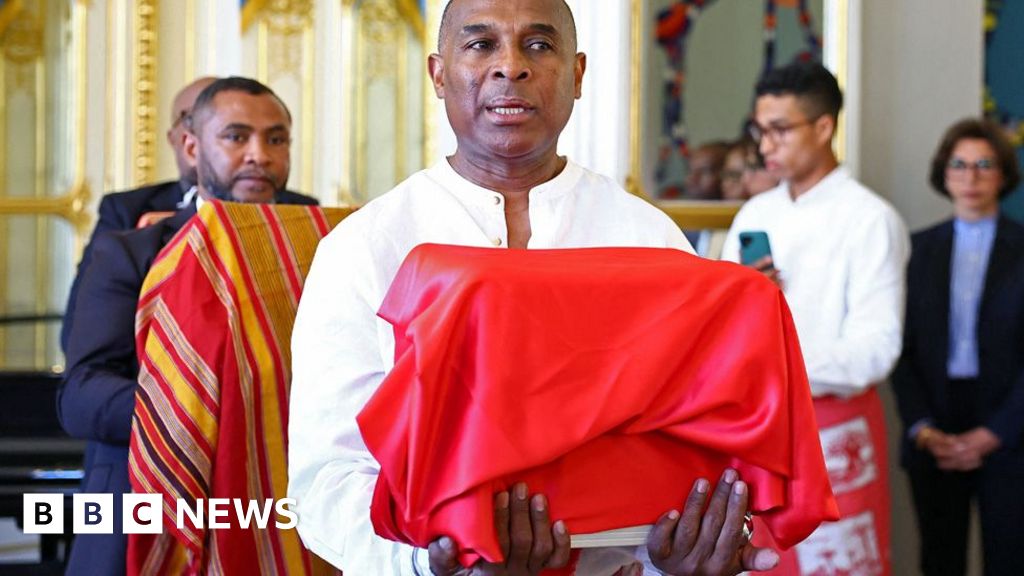Ngũgĩ wa Thiong'o, one of Africa's most influential writers, has passed away at the age of 87, marking the end of an era for modern African literature. Renowned for his relentless spirit and innovative storytelling, Ngũgĩ defied the constraints of political oppression, exile, and health issues throughout his prolific career, which spanned more than sixty years.
Born James Thiong’o Ngũgĩ in 1938 in colonial Kenya, he rose from humble beginnings in Limuru to become a literary giant whose works documented the dramatic changes in his homeland. Despite being nominated numerous times for the Nobel Prize in Literature, Ngũgĩ never received the accolade, leaving many of his admirers questioning the literary world’s oversight.
Ngũgĩ's journey began with his formative experience at Alliance High School, a British-run institution that he attended thanks to his parents' sacrifices. However, the impact of colonial violence was also felt in his life; he witnessed the profound devastation of his village, endured family losses during the Mau Mau Uprising, and faced imprisonment for his outspoken views against both colonial and post-colonial leadership.
His debut novel, "Weep Not, Child," was published in 1964 and quickly followed by the acclaimed "A Grain of Wheat" and "The River Between," establishing him as a leading voice in African literature. In 1977, in a pivotal shift, he adopted the name Ngũgĩ wa Thiong'o and dedicated himself to writing exclusively in Kikuyu, his mother tongue. His final novel in English, "Petals of Blood," critiqued the post-independence Kenyan elite and resulted in his imprisonment without trial, during which he wrote his first Kikuyu novel, "Devil on the Cross."
After years in self-imposed exile following threats to his life, Ngũgĩ eventually returned to Kenya, but faced more harrowing experiences, including a brutal home invasion. Despite these trials, he remained a prominent advocate for the use of African languages in literature, engaging in critical debates about Africa's literary identity.
Throughout his life, Ngũgĩ's work sparked significant discussion on colonial legacies in literature and the need for authentic African voices. With nine children, four of whom are published authors themselves, his family has also been part of the literary landscape, though it faced its own share of controversies.
In recent years, Ngũgĩ battled health challenges but maintained his commitment to literature and teaching at prestigious institutions like Yale and the University of California. His contributions extended beyond the written word, as he inspired generations of writers and activists advocating for cultural and linguistic independence.
Ngũgĩ wa Thiong'o’s passing leaves a significant void in African literature and serves as a reminder of the enduring struggle and triumph of African voices in global literature. As reflections continue on his significant contributions, his legacy as a champion of native language and culture will undoubtedly endure.
Born James Thiong’o Ngũgĩ in 1938 in colonial Kenya, he rose from humble beginnings in Limuru to become a literary giant whose works documented the dramatic changes in his homeland. Despite being nominated numerous times for the Nobel Prize in Literature, Ngũgĩ never received the accolade, leaving many of his admirers questioning the literary world’s oversight.
Ngũgĩ's journey began with his formative experience at Alliance High School, a British-run institution that he attended thanks to his parents' sacrifices. However, the impact of colonial violence was also felt in his life; he witnessed the profound devastation of his village, endured family losses during the Mau Mau Uprising, and faced imprisonment for his outspoken views against both colonial and post-colonial leadership.
His debut novel, "Weep Not, Child," was published in 1964 and quickly followed by the acclaimed "A Grain of Wheat" and "The River Between," establishing him as a leading voice in African literature. In 1977, in a pivotal shift, he adopted the name Ngũgĩ wa Thiong'o and dedicated himself to writing exclusively in Kikuyu, his mother tongue. His final novel in English, "Petals of Blood," critiqued the post-independence Kenyan elite and resulted in his imprisonment without trial, during which he wrote his first Kikuyu novel, "Devil on the Cross."
After years in self-imposed exile following threats to his life, Ngũgĩ eventually returned to Kenya, but faced more harrowing experiences, including a brutal home invasion. Despite these trials, he remained a prominent advocate for the use of African languages in literature, engaging in critical debates about Africa's literary identity.
Throughout his life, Ngũgĩ's work sparked significant discussion on colonial legacies in literature and the need for authentic African voices. With nine children, four of whom are published authors themselves, his family has also been part of the literary landscape, though it faced its own share of controversies.
In recent years, Ngũgĩ battled health challenges but maintained his commitment to literature and teaching at prestigious institutions like Yale and the University of California. His contributions extended beyond the written word, as he inspired generations of writers and activists advocating for cultural and linguistic independence.
Ngũgĩ wa Thiong'o’s passing leaves a significant void in African literature and serves as a reminder of the enduring struggle and triumph of African voices in global literature. As reflections continue on his significant contributions, his legacy as a champion of native language and culture will undoubtedly endure.
















